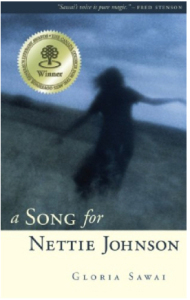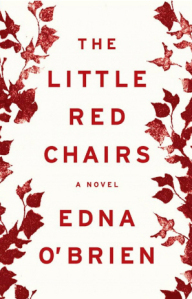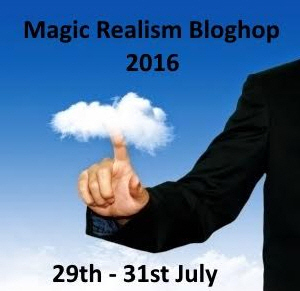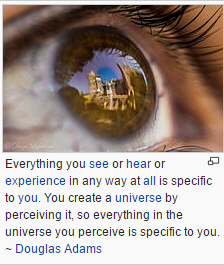Malcolm R. Campbell's Blog, page 189
August 19, 2016
Public Invited to Celebrate the Centennial Of The National Park Service At Glacier National Park
from NPS Glacier National Park
Park Entrance Fees Waived for August 25 –August 28
Entrance fees to the Park, as well as all other units of the National Park Service, will be waived for four days.
 WEST GLACIER, MONT –On August 25th celebrate the centennial of the National Park Service. The celebration is as much a reflection on the importance the national park system has played in our nation’s heritage as it is an opportunity to look forward to the next 100 years. As we take that look,we must do everything we can to foster the next generation in becoming outstanding stewards and advocates for Glacier National Park and prepare them for the future challenges of protecting its natural resources, celebrating its cultural legacy, and providing for outstanding visitor experiences.
WEST GLACIER, MONT –On August 25th celebrate the centennial of the National Park Service. The celebration is as much a reflection on the importance the national park system has played in our nation’s heritage as it is an opportunity to look forward to the next 100 years. As we take that look,we must do everything we can to foster the next generation in becoming outstanding stewards and advocates for Glacier National Park and prepare them for the future challenges of protecting its natural resources, celebrating its cultural legacy, and providing for outstanding visitor experiences.
At Glacier, we are in the forever business, always taking that long look forward to where we are headed. The next generation will be challenged by managing the parks in the face of climate change. For this park it could mean the loss of its remaining glaciers with significant impacts on the ecosystems and the waterways which originate from here. The next generation will also face an ongoing change in park demographics.This could mean a demand for new recreational experiences, adapting to increases in visitation, and adjusting to rapidly evolving technology.
Our cultural heritage at Glacier National Park goes back far beyond the establishment of the park. It goes to the deep connectivity that the Kootenai, Blackfeet, Salish, and Pend D’Oreille have to this landscape. Thosenative traditions and practices are an important part of the deep rich texture of Glacier National Park. As the park and tribes move forward together in the next 100 years, the next generation has the opportunity to strengthen important programs, such as Native America Speaks, tourism development, and the Iinnii project, and develop new initiatives with our tribal partners.
As we enter our second century, I invite you to celebrate with us the sense of wonder that these historic and wild landscapes have instilled in us all.
The National Park Service Centennial Week Events

Commemorative coins
National Park Centennial Instameet: Glacier National Park, partnering with the Glacier National Park Conservancy, the Department of the Interior, and Visit Montana as well as special guest photographers are hosting an Instameet on August 25from 6 p.m. to sunset in the Apgar Village Green near the Apgar Village Inn. Visitors are encouraged to come together to connect, explore, and celebrate creativity with a camera, make new friends, exchange ideas, and celebrate the 100thbirthday of the National Park Service (NPS). All ages, levels of experience and types of cameras are welcome. Around 6:15 p.m. the host of the Instameet will say a few words in regards to the National Park Service centennial. The official Glacier National Park Service centennial visitor photograph will be taken around 7:00 p.m. Visitors will have a chance to sign the photo matte and be a part of NPS history. The photograph will be posted on our social media sites, printed and hung in the park, as well as copy presented to the director of the National Park Service. It is anticipated that attendance will be high;visitors are encouraged to park at the Apgar Visitor Center and take the bike path to the event.
NPS Photo
Happy Birthday NPS 100 Ranger Program: Say “Happy Birthday NPS” and join a national park ranger for a special program at the St. Mary Visitor Center Auditorium, Thursday, August 25, 8:00 p.m. Admission is by ticket only, with only 209 tickets available. Attendees can pick up a free ticket at the St. Mary Visitor Center beginning on the morning of August 24.The program will explore the history of the National Park Service, reflect on the last 100 years, and the role Glacier will play as we prepare for the next 100.
Logan Pass Star Party: Explore the dark skies of Glacier National Park and attend the Logan Pass Star Party. Admission is by ticket only. Attendees can pick up their free ticket (one per vehicle) at the Apgar or St. Mary Visitor Centers beginning Thursday August 25. The Logan Pass Star Party will be held at Logan Pass Parking Lot from 9:30 p.m. to midnight on Friday, August 26. Attendees will have opportunities to meet with rangers and members of the Big Sky Astronomy Club while taking in the unusually dark skies. There will also be telescopes available to look into the depths of the universe.
Give Back To Glacier Week: The Glacier National Park Conservancy (GNPC) is hosting a “Give Back To Glacier Week,” from August 19 –28.GNPC volunteers will be at entrance locations throughout the park asking for involvement in the program. The GNPC is the official fundraising partner of Glacier National Park providing funding for vital projects and programs that preserve and protect the park.
–
Wish I could be there.
–Malcolm
Malcolm R. Campbell’s contemporary fantasy novels “The Sun Singer” and “Sarabande” are set in Glacier National Park. He was a bellman at Many Glacier Hotel while in college.


August 16, 2016
Jesus, a Sun Deck, a Kimono and Magical Realism
“You can imagine then how distinctly I remember the day Jesus of Nazareth, in person, climbed the hill in our back yard to our house, then up the outside stairs to the sun deck where I was sitting. And how He stayed with me for awhile. You can surely understand how clear those details rest in my memory. ” – Gloria Sawai, “The Day I Sat With Jesus on the Sun Deck and a Wind Came Up and Blew My Kimono Open and He Saw My Breasts” in ‘A Song for Nettie Johnson’ (2002)
It probably won’t surprise you to hear that this short story, first published in 1976 or 1980 (depending on which source you use), has been anthologized and discussed a great deal due to its unusual title. I find magical realism flowing through the story while others think the author merely came up with a clever title and couldn’t do it justice. (You can read the short story in PDF form here.)
 I like Morny Joy’s take on the short story in Voices and Echoes: Canadian Women’s Spirituality: “No ecstasies, stigmata, fasts undo death or masochistic indulgences for this visionary. No cloistered convent or perpetual vows of chastity in the name of a temperamental divine lover. No proclamations of salvation or indictments of this perfidious, lascivious world. Instead, a woman has a neighborly chat with Jesus on the deck of a house on the outskirts of Moose Jaw.” (You can read the rest of her commentary here.)
I like Morny Joy’s take on the short story in Voices and Echoes: Canadian Women’s Spirituality: “No ecstasies, stigmata, fasts undo death or masochistic indulgences for this visionary. No cloistered convent or perpetual vows of chastity in the name of a temperamental divine lover. No proclamations of salvation or indictments of this perfidious, lascivious world. Instead, a woman has a neighborly chat with Jesus on the deck of a house on the outskirts of Moose Jaw.” (You can read the rest of her commentary here.)
As Joy notes, this story “illustrates the extraordinary in the ordinary,” and that is what we expect when reading magical realism.
Within A Song for Nettie Johnson, the story is unique, for it is the only one where magic is overtly mixed with the days of the characters’ lives. Some reviewers think the story doesn’t fit and should have been left out. I see their point, but I don’t agree. This story presents another viewpoint in a collection that Cocteau Books says “examines the heartbreaking lives of people on the margins.”
Consider the book’s description: A group of young school students prepares a memorial for the town’s deceased doctor, at the inadvertent risk of deeply offending his widow. A young girl learns important things about herself – some of them extremely unpleasant – on a storm-ravaged Mother’s Day weekend. A woman on a road trip in search of her erstwhile husband finds instead the one thing she never expected to see again in her lifetime. A woman sitting on the deck outside her Moose Jaw home receives an unusual and unexpected gentleman caller. And, in the title story, an outcast and misunderstood woman and her disgraced lover struggle toward what may be their last chance at redemption.
 The short story collection won the Governor-General’s-Award in 2002. The winner’s news release said, “Gloria Sawai brilliantly creates a world in which love and light redeem human failings. With clarity, deftness and generosity, she celebrates a universe in which even the least of her characters can achieve a vision of the infinite.” The finalist news release said, “A Song for Nettie Johnson is a profoundly light-filled collection of short stories set on the Prairies and peopled with holy sinners, visionaries, children and so-called ordinary folk. The power of grace illuminates her world.”
The short story collection won the Governor-General’s-Award in 2002. The winner’s news release said, “Gloria Sawai brilliantly creates a world in which love and light redeem human failings. With clarity, deftness and generosity, she celebrates a universe in which even the least of her characters can achieve a vision of the infinite.” The finalist news release said, “A Song for Nettie Johnson is a profoundly light-filled collection of short stories set on the Prairies and peopled with holy sinners, visionaries, children and so-called ordinary folk. The power of grace illuminates her world.”
I read this collection years ago and I think I wrote a post about it–because she is among the writers who have influenced my own writing–but that must have been in another blog because I can’t find it in the archive. I find myself thinking of her from time to time along with her stories which, as the Canadian Encyclopedia describes them, are “filled with gentle humour. Her stories often focus on characters in pious communities, set amid the majestic extremes of weather and landscape on the prairies. They emphasize the power of grace to bring forth hope, wonder, and goodness out of circumscribed lives and straitened circumstances.” (Sawai, of Edmonton, Alberta, Canada, died in 2011 at 78 years of age.)
Here’s a brief excerpt from the story: “First He was a little bump on the far, far off prairie. Then He was a mole, way beyond the quarry. Then a larger animal, a dog perhaps, moving out there through the grass. Nearing the quarry, He became a person. No doubt about that. A woman perhaps, still in her bathrobe. But edging out from the rocks, through the weeds, toward the hill, He was clear to me. I knew then who He was. I knew it just as I knew the knew the sun was shining…And there He was. Coming. Climbing the hill in our back yard, His body bent against the climb, His robes ruffling in the wind. He was coming. And I was not ready. All those mouldy clothes scattered about the living room. And me in this faded old thing made in Japan, and drinking—in the middle of the morning.”
Perhaps some of you will enjoy this collection, the art and craft of all the selections, and the lighthearted but powerful “The Day I Sat With Jesus on the Sun Deck and a Wind Came Up and Blew My Kimono Open and He Saw My Breasts.”
–Malcolm
Malcolm R. Campbell is the author of the magical realism novella “Conjure Woman’s Cat.”


August 15, 2016
do you know why you read what you read or does it just kind of happen
“A reader’s tastes are peculiar. Choosing books to read is like making your way down a remote and winding path. Your stops on that path are always idiosyncratic. One book leads to another and another the way one thought leads to another and another. My type of reader is the sort who burrows through the stacks in the bookstore or the library (or the Web site — stacks are stacks), yielding to impulse and instinct.” ― Jane Smiley
I’m a creature of habit and my strongest habit is inconsistency.
During the Vietnam War, bar girls in navy liberty ports used the phrase “butterfly man” to describe sailors who weren’t “loyal” to the same woman every time they came to port.
Assuming I can forget where that phrase came from, it aptly describes the apparent inconsistency of a writer’s reading habits as well as his/her seemingly slapdash approach to the art and craft of writing itself.
As Smiley says, our paths are winding and are choices along them are idiosyncratic and ruled by impulse and instinct. I grab books off the shelves because they seem like they’re going to be good. I am seldom fooled by this approach, though I have gotten stuck with a few books I wished I hadn’t grabbed off the shelves.
When I try to outline or, so to speak, plot out my reading choices (such as reading only one genre or reading all the books that receive certain prizes), I end up with a mess. Inconsistency makes perfect sense to me because I trust instinct and impulse more than I trust to-do lists and step-by-step plans.
I spent a lot of time out doors when I was growing up, and while certain things were good to do based on experience, one had to be ready for anything, to watch for signs, changes of weather, become attuned to sounds and scents and wrap that all together into moving up a mountain or along a trail with a fair amount of intuition. Sure, a lot of it was knowledge that had become internalized and then followed without having to think about it. But instinct kept one aware of dangers and wonders that plans never uncovered.
The worst thing people can for me is to recommend books. Then, suddenly, I start feeling an obligation to read those books, and get back to them the moment I’m done as though I’m doing a school book report. Funny, how there are people I like and agree with about a lot of things except the books they want me to read. “They want me to read book ABC because it’s by the same author and/or similar to book XYZ which they know I liked.”

I know NPR and other media outlets mean well with their lists of a year’s best books, but I don’t take those ideas a gospel.
I dislike most of the books suggested to me based on that kind of reasoning.
This will sound superstitious and insanely inconsistent, but I’m a “force is with me” kind of reader and writer. That is to say, if I’m “supposed to read” a certain book, I’ll find if by myself one way or another. If it’s a book I probably won’t like, I either don’t hear of it or stay away from it for unknown reasons.
My wife and I often finish each other’s sentences, but we seldom finish books one of us reads and recommends to the other. If you’re not my wife (and the odds are 100% that you’re not) you have a snowball’s chance in hell of handing me a book to read that I’ll be happy with.
Over the years, family members have given up on picking books for me as gifts. When Christmas and my birthday approach, they want to see a wish list from which to choose. (I just need to remember not too buy anything off the list before December 25th and August 12th have come and gone.)
So, how have you fared? Do family members and friends tend to know what you want to read and suggest or send books to you that you actually like. Or do they strike out?
I feel bad when people send me books I don’t like because having to tell them I don’t like the book they selected is about as difficult to do without injury as answering such questions as “how do you like my new dress,” “isn’t my hairdo just perfect,” and “would you like some more of my green bean casserole?” So many hurt feelings, busted noses and broken marriages come from answering those questions incorrectly.
Seriously, if we like each other, please don’t say, “Malcolm, you really need to read Lust in a Broken Birdbath (or whatever).”
Malcolm R. Campbell’s Vietnam novel “At Sea” is free on Kindle August 15-17.


August 12, 2016
Thoughts on getting older
If you came here today expecting wisdom or anything approaching sage advice, you’re screwed.
For one thing, I don’t think you came here for that reason because, as we were saying during the Vietnam War, you can’t trust anyone over 30. Today, our youth culture still maintains this truth, adding to it the idea that it’s completely unnecessary to know anything about what happened over 30 years ago.
 I’m amused by people half my age who explain things to me that I knew before they were born. I think my parents were amused by this when I told them stuff I learned in college. Some of what I told them they experienced first hand–like World War I and the depression.
I’m amused by people half my age who explain things to me that I knew before they were born. I think my parents were amused by this when I told them stuff I learned in college. Some of what I told them they experienced first hand–like World War I and the depression.
For those of you under 30, World War I happened before World War II, though with today’s math instruction in the schools, that probably doesn’t make sense. And, the depression wasn’t the kind one tried to escape with Valium or Xanax.
Quite possibly, I have a long list of things about which I can say, “been there, done that, got the tee shirt.” Unfortunately, more and more people haven’t heard of any of those things even if they do have the tee shirts.
One of those things is walking or riding my bike to school. That doesn’t seem to be done anymore. In fact, it appears to be borderline illegal. I’m reading this novel right now in which a single mother wonders how so many parents can attend–by her calculation–some 30+ hours a week of school related activities: plays, talent shows, recitals, togetherness sessions all of which occur during working hours. If you don’t show up, the parents that do show up pity you and think you’re rearing* your children wrong. They think that, too, if they see your kid riding or walking to school.
I work at home as a quasi retired, borderline crazy writer. That means I can log on to Facebook and Twitter any time I want. When I’m there, one thought is this: what the hell are all these other people doing out here during working hours? I know, I know, since corporations and other employers are borderline criminal, it’s okay to steal time from them by texting and looking at Facebook. Or, maybe their employers think it’s okay and have hired extra staff to cover the time when the current staff is online. That sounds like something that would happen in France.
I guess it comes down to this, my thoughts on getting older probably sound like the same kinds of thoughts by parents and grandparents had when they were getting older, and that boils down to you kids have it easy, hell, my generation had to claw its 20 miles to school on snowshoes. Most of you didn’t know my parents and grandparents, so maybe this snow information is something new.
See what I mean? You’re screwed (figuratively speaking, hopefully) for reading this post.
* One way you can tell I’m over 30 is that I say “rearing kids” instead of “raising kids.” In the old days, “raising” referred only to pets and/or pigs. And jackasses, too, I would think.


August 10, 2016
Conjure: why those frizzle chickens are handy
“The Frizzle is a breed of chicken with characteristic curled or frizzled plumage. While the frizzle gene can be seen in many breeds, such as thePekin and Polish, the Frizzle is recognized as a distinct breed in a number of European countries and Australia. In the United States frizzled chickens are not considered a breed, and at shows are judged by the standards of the breed they belong to.” – Wikipedia
Unless one keeps chickens or attends 4-H competitions, most of us will probably never see a chicken with frizzled (curled) plumage, what one blogger calls the “divas of the chicken world.” However, if you’re researching hoodoo for your books–as I have been–it’s amazing what you learn about all kinds of things that are indirectly related to your subject.
So, how would chickens help a conjurer?

Frizzle chicken – Wikipedia photo
First, conjure includes what’s often generically referred to as foot track magic, tricks (hexes) that are placed on the ground in order to keep away or send away people who might walk through them or over them; they are also used as one of the many techniques that can protect one’s own property.
Second, the best defense is a good offense, so if you’re a conjurer, you want your property protected so that others can’t come on it while you’re asleep or away and place tricks on the normal pathways use use to come and go, walk to the potting shed or garden, or gather eggs from your own chickens.
If your chickens aren’t confined in a coop, what do you see them doing on the property? They’re constantly scratching the soil looking for something to eat. If they scratch through a hex sign, for example, they destroy it. According to some conjurers, black frizzle hens are a very good defense against anything a rival did to your property if they find a way to get onto it without your own magic turning them away.
As the very handy Lucky Mojo site puts it, “The backwards curling of the frizzled feathers on these birds is seen as a natural expression of their ability to undo bad work that has been laid down to walk over. Frizzles come in all the usual chicken colours and patterns, but since black hens are the birds most often used to scratch up evil powders in the yard, it follows that a black Frizzled hen would be the best possible bird in the world for that purpose. As with the black cat, also much admired and much feared in hoodoo work, a black Frizzle hen’s dangerous associations with the infernal can be parlayed by a deft root doctor into a powerful tool for undoing and reversing evil and uncrossing clients..”
If you’re working evil, you’ll find the eggs from black hens very effective, but that’s another story. If you want the chickens for style, you should know that their plumage doesn’t offer as much protection against rain and cold weather as flat feathers. Keep them in a sheltered place during bad weather.
–Malcolm
Malcolm R. Campbell is the author of the hoodoo novel “Conjure Woman’s Cat,” available at major booksellers in paperback, e-book and audiobook.


August 4, 2016
Quickly Noted: ‘The Little Red Chairs’ by Edna O’Brien
“On the 6th of April 2012, to commemorate the 20th anniversary of the start of the siege of Sarajevo by Bosnian Serb forces, 11,541 red chairs were laid out in rows along the 800 meters of the Sarajevo high street. One empty chair for every Sarajevan killed during the 1,425 days of siege. Six hundred and forty-three small chairs represented the children killed by snipers and the heavy artillery fired from the surrounding mountains.” – from “The Little Red Chairs”
What do the fairy tale setting in a remote Irish town and Radovan Karadzic, the Butcher of Bosnia, have in common? In a sane world, nothing. In her alternate history, 85-year-old Edna O’Brien combines what begins as an apparent folktale with the chilling angst of an Irish woman, Fidelma, who stumbles beneath the butcher’s spell before she knows he’s the butcher. As a stranger in her small town, Vlad is an event, a hypnotizing holy man and trickster with wisdom and danger in his eyes, the kind of man every mother warns every daughter about.
 As the story begins with all the charm of “The Music Man,” it’s easy to fall beneath the steel wheels of O’Brien’s spell and hope against hope tht her words are leading toward something perhaps a bit scandalous, something that might leave the townspeople–and especially Fidelma–with a few bittersweet scars of the kind that aren’t really cut that deep. But O’Brien’s tale goes where it must, to graphic and unspeakable horror from which Fidelma cannot quite escape. None of those 11,541 chairs was for her, but–if she had lived and breathed outside of fiction–destiny owed her a chair and, perhaps, absolution.
As the story begins with all the charm of “The Music Man,” it’s easy to fall beneath the steel wheels of O’Brien’s spell and hope against hope tht her words are leading toward something perhaps a bit scandalous, something that might leave the townspeople–and especially Fidelma–with a few bittersweet scars of the kind that aren’t really cut that deep. But O’Brien’s tale goes where it must, to graphic and unspeakable horror from which Fidelma cannot quite escape. None of those 11,541 chairs was for her, but–if she had lived and breathed outside of fiction–destiny owed her a chair and, perhaps, absolution.
The Butcher of Bosnia is, in some mysterious way, the air which this story needs in order to breathe, and yet in other ways who he is and what he did are not the novel’s focus. The focus is Fiedelma, her suffering, her acts which were a curse to her village, her misplaced innocence that brought her, as naivete often does, to a hell from which there was no escape.
This novel is not for the faint of heart. As Joyce Carol Oates wrote in her New York Times review, “O’Brien is not interested in sensationalizing her material, and ‘The Little Red Chairs’ is not a novel of suspense, still less a mystery or a thriller; it is something more challenging, a work of meditation and penance. How does one come to terms with one’s own complicity in evil, even if that complicity is ‘innocent’? Should we trust the stranger who arrives out of nowhere in our community? Should we mistrust the stranger? When is innocence self-destructive? Given the nature of the world, when is skepticism, even cynicism, justified? Much is made of innocence in fiction, as in life, but in O’Brien’s unsentimental imagination the innocent suffer greatly because they are not distrustful enough.”
When we consort with the devil, by whatever name he identifies himself, should we not expect betrayal? It’s not an easy question, spells being what they are and innocence being what it is. Is there a message in this book? Yes: trust ensures our doom.
Oates’ questions are ever on our minds these days when terrorism comes out of nowhere and visits pleasant communities and exuberant celebrations in large cities. I wonder if we can afford to be innocent these days. If not, what a pity. Suffice it to say, Fidelma will find little pity because those who (we often say) should have known better are seldom afforded the compassion granted the skeptical or the ignorant.
Yes, this novel is a masterpiece. Yes, it is well told, dark and deep. But it should carry on its cover a warning: “Abandon all hope, ye who enter here.” You cannot read this novel without being forever changed. I dealt with the book quickly here because I am too faint of hear to speak about it at length.


August 3, 2016
Oh no, I missed the top earning writers’ list
Here’s the list (stolen from Jane Yolen’s Facebook profile):
1. James Patterson $95 million
2. Jeff Kinney $19.5 million
3. J.K. Rowling $19 million
4. John Grisham $18 million
5. Stephen King $15 million
5. Danielle Steel $15 million
5. Nora Roberts $15 million
8. E.L. James $14 million
9. Veronica Roth $10 million
9. John Green $10 million
9. Paula Hawkins $10 million
12. George R.R. Martin $9.5 million
13. Dan Brown $9.5 million
14. Rick Riordan $9.5 million
I’m shocked. I don’t see my name there. What the hell happened? Maybe Forbes magazine screwed up the math.
–Malcolm


August 2, 2016
There’s nothing in your spam queue at the moment
An empty spam queue is good news whether it’s one’s e-mail account or one’s blog.
According to “A Brief History of Spam,” a pervasive urban myth is that (when referring to the meat product introduced by Hormel in 1937) the letters S, P, A, M are an acronym for “Scientifically Processed Animal Matter.” I’m sure the Hormel company doesn’t agree. But I wonder, what does the company call its e-mail queue of unwanted junk mail?
 WordPress protects bloggers from most of the SPAM. I look in the queue from time to time to see what’s there. Unlike my e-mail accounts which occasionally have legitimate e-mails in the SPAM queue, there is almost never anything other than the lowest quality animal matter in my WordPress SPAM queue.
WordPress protects bloggers from most of the SPAM. I look in the queue from time to time to see what’s there. Unlike my e-mail accounts which occasionally have legitimate e-mails in the SPAM queue, there is almost never anything other than the lowest quality animal matter in my WordPress SPAM queue.
I’ve written about the SPAM queue here from time to time because I can’t figure out how or why SPAM would ever work. It has a snake oil quality about it that looks even worse (assuming that’s possible) when the messages are written with the pretense that the spammer has actually read the post to which they’re attached.
Many newsletters destined for my e-mail accounts suggest that I put their addresses in my “this stuff is okay” list (or whatever it’s called) since they often have links in them that anti-SPAM software interprets as SPAM.
That’s too bad because my e-mail account has way too much SPAM in the SPAM queue for me to sort through it item by item. Maybe spammers should wise up and make their e-mails and comments look less like SPAM.
If spammers tried to sell me what my blog subjects suggest I might be willing to buy, they might have more luck. That’s what I would do if I went into the SPAM business. Goodness knows, I wouldn’t be peddling Viagra to people with writing-related blogs. I’d be peddling writing services. I never find any of those in my WordPress SPAM queue.
Not that I want to. When we advertise legitimate products, we’re advised to target our audiences. That’s what we do when we boost a post on Facebook. We look for people who might really want our book or short story collection or authors’ services site. Spammers don’t seem to do that. I’m glad they don’t, because I don’t want more stuff I have to manually delete.
You can tell it’s a slow day when I waste time pondering SPAM.
–Malcolm
Malcolm R. Campbell’s publisher, Thomas-Jacob, is giving away a free Kindle Fire tablet to one of the people who subscribes to the new mailing list. The Random drawing is a couple of weeks away. So, if you want a shot at the Kindle and if you want to keep up with my work and the work of the other authors at Thomas-Jacob, here’s the link for the subscription/entry form.


July 31, 2016
When magic creates the ride, all the writer can do is hang on
“A bit of advice
Given to a young Native American
At the time of his initiation:
As you go the way of life,
You will see a great chasm. Jump.
It is not as wide as you think.”
― Joseph Campbell
Magic is like drugs. However, once you let it take over, you’re not lost. You are found. Logic, the more addictive drug, will become your greatest trap because, like an old bad habit, it works on you, makes you think that magic is a a delusional part of your unconscious that’s escaped into your mind like devils, makes you doubt yourself.
 Whenever I run back to logic, I stop writing. I stop writing because logic tells me loud and clear that hanging on to a magic carpet as my fingers type words on the screen is no way to write a book. It’s illogical. One must plot and plan and outline the who shebang from beginning to end. Yes, that makes sense. The thing is, I don’t know the story I’m telling until I’m telling it, and then all I know is what happens next.
Whenever I run back to logic, I stop writing. I stop writing because logic tells me loud and clear that hanging on to a magic carpet as my fingers type words on the screen is no way to write a book. It’s illogical. One must plot and plan and outline the who shebang from beginning to end. Yes, that makes sense. The thing is, I don’t know the story I’m telling until I’m telling it, and then all I know is what happens next.
When logic gets a hold of me, I’m scared to write: I don’t think I can do it because I don’t know how I do it. As I mentioned in my last post, we create our own reality. So, we meditate, play around with the law of attraction, go on shamanic journeys, repeat affirmations and cast spells, but how quickly that can fade in the chilling light of day when the car won’t start or your spouse is sick or the man you hired to build a fence around part of your property hasn’t shown up for six weeks or the trees in your yard of dying for lack of rain. Where’s the magic now?
Logic breeds on itself. The more I think I need it, the more I use it, doubting myself more and more in the process. Sooner or later, I say to hell with that and jump the growing chasm of doubt. The rains come, the fence gets built, my wife gets well, and the words flow.
Some say magic gives the practitioner more control. I suppose if one thinks of magic is the wizards in the Harry Potter books hurling never-fail spells across the room, then perhaps it does. But there’s a paradox here. Exerting control is logical thinking. To live and write by magic means surrendering to the greater part of oneself and the universe and one understanding that the less one pushes, the smoother the ride.
A couple of days ago, I used the word “epitaph” in a figurative way in my work in progress. The moment I did it, I knew it wasn’t figurative at all. Magic knew where it was going before I did and logically it made so sense to go there. After resisting that idea for two days, I saw I had no choice but too get out of the way of the story in the same kinds of ways our greater selves ask us to step out of the way of the directions our lives are meant to go.
 Too much logic ensures it’s going to be a bumpy ride.
Too much logic ensures it’s going to be a bumpy ride.
When I was in the navy, I often heard the proverb “Smooth seas don’t make good sailors.” Maybe we need a few of those hard knocks of life to finally understand we’re going about it all wrong and start seriously looking for a better way.
I think I ran through every pothole the universe had to offer until I realized I was gripping the wheel as though my life and art depended on it. Early in life, we often become brainwashed into thinking we need to grip that wheel the way we do.
Whenever writer’s block looms large before me, I remind myself to let go while I write. My hope is that my readers will let go while they read.
–Malcolm
Malcolm R. Campbell is the author of the magical realism novella “Conjure Woman’s Cat,” available in paperback, e-book and audiobook.
This post is part of the Magic Realism Blog Hop. About twenty blogs are taking part in the hop. Over three days (29th – 31st July 2016) these blogs will be posting about magic realism. Please take the time to click on the frog button for a list of other blogs in the hop. Links to the new posts will be added over the three days, so do come back to read more.


July 28, 2016
Storytelling, dreams, and magic
Life in Truth (as opposed to the “life actual” world we see with our eyes) “tells us of the world as it should be. It holds certain values to be important. It makes issues clear. It is, if you will, a fiction based on great opposites, the clashing of opposing forces, question and answer, yin and yang, the great dance of opposites. And so the fantasy tale, the ‘I that is not you,’ becomes a rehearsal for the reader for life as it should be lived.” – Jane Yolen in “Touch Magic”
 When we wake up from a dream, we’re aware of the fact that we didn’t realize we were dreaming while we were dreaming, but accepted what was happening as real no matter how improbable it seems in the light of day. Daydreams are somewhat the same. We’re imagining surfing in Hawaii or climbing Mt. Everest when somebody says, “you look like you’re a thousand miles away.”
When we wake up from a dream, we’re aware of the fact that we didn’t realize we were dreaming while we were dreaming, but accepted what was happening as real no matter how improbable it seems in the light of day. Daydreams are somewhat the same. We’re imagining surfing in Hawaii or climbing Mt. Everest when somebody says, “you look like you’re a thousand miles away.”
Authors hope readers will react to their books like this. We want the reader to step into the story and, as the words flow forward along the pages, believe a little or a lot that the story is real. When a book is compelling, readers are often startled when the phone rings or somebody knocks on the front door and they find themselves back in “life actual” in somewhat the same way they react when they wake up from a compelling dream.
It’s said that Samuel Taylor Coleridge suggested that when stories contain human interest and a semblance of truth, readers will temporarily suspend their judgement about the implausibility of the plot, setting and characters. Readers willingly suspend their disbelief and see the novel, short story, play or movie as life actual rather than life in truth.
A general fiction author will take us to a real place, or at least a realistic place, in our own comfortable domain of life actual (sometimes called “consensual reality”) and tell us a story that could happen (or might have happened) in the “real world.” (I put “real world” in quotation marks because both Quantum physicists and spiritual gurus have called into question whether the world we perceive as real is real.)
Contemporary fantasy authors will take you to a hidden place within the world we know where magical events occur. The Harry Potter series is a good example of this. Most of the magic within Rowling’s books was confined to Hogwarts and other magical locations. The consensual reality at Hogwarts was different from the consensual reality in London, and both readers and wizards knew that they were traveling between parts of the world with different rules.
 Magical realism authors bring magic into the world we know. In a magical realism story, the magic is part of the characters’ everyday life and is accepted as just as real and viable as the cars they drive and the pots and pans in their kitchens. The characters don’t see magic as something with the world “maybe” attached to it whether that magic comes from the land, from ancestors or spirits, or from the spell casting or innate abilities of the people involved.
Magical realism authors bring magic into the world we know. In a magical realism story, the magic is part of the characters’ everyday life and is accepted as just as real and viable as the cars they drive and the pots and pans in their kitchens. The characters don’t see magic as something with the world “maybe” attached to it whether that magic comes from the land, from ancestors or spirits, or from the spell casting or innate abilities of the people involved.
The authors of general fiction (or realistic genres), contemporary fantasy, and magical realism all want readers to suspend their natural disbelief in the reality presented in the novel, and accept it as real in the same way they accept dreams and daydreams as real. In some ways, readers are like those who go up on stage during a hypnotist’s or magician’s performance and say, “Yes, I’m willing to be hypnotized” or “Yes, I’m willing to be fooled by your illusions.”
Perception is Reality
Storytellers, hypnotists and stage magicians (illusionists) can place you into somewhat of a dream state in which you accept what’s happening as real because we believe that perception is reality in one or more of these ways:
Psychologists might say you see the same reality as everyone else, but are impacted by it differently because of how you feel about it or yourself.
Quantum physicists might say that reality is more than we perceive with our physical senses and that our thoughts or our presence impact it in ways we may not realize.
Those who study and accept what used to be called “new age” belief systems will say that our perception and our thoughts create the reality we experience and that we can be taught how to do this consciously.
And others will say that our perception of what is real can changed temporarily due to hypnosis, strong emotions or other traumas, alcohol or drugs, or some other life actual cause.
When it comes down to it, most authors don’t think about “perception is reality” while they’re writing. Learning one’s craft brings authors the techniques they need to tell a page-turning story that readers perceive as real while they’re reading it. Most of us want to be tricked one way or another when we watch a hypnotist’s or a stage magician’s performance. We don’t usually think about being tricked or enchanted or hypnotized when we pick up a novel, but that’s what happens if the story on that novel’s pages is well told.
Magical Realism or Just Plain Realism?
I see the world as a child of the new age. I’ve had arguments with publishers about whether my novels and short stories should be called general fiction or magical realism because I believe everything in my stories is real. But, publishers, bookstores and readers tend to like seeing the genre labels because those labels help them choose the ways they like being hypnotized or enchanted (in a magical sense) by an author.

What do you see?
I’ve always written about the world I perceive. Until others pointed it out, I didn’t realize I was writing magical realism. I had to ask, “What makes my stories fit into that genre?” Publishers, editors and writing gurus kept telling me, “You and your characters. . .”
View the spell for creating a pillar of fire or jinxing a troublesome neighbor as no different than a recipe for mac and cheese.
Assume haints and other spirits are just as likely to be in the forest as deer and raccoons.
Give myths and legends just as much credence as recorded history–or suggest they’re more accurate
Think trees, rocks, storms and the land itself are conscious.
I said, “Yes, of course I perceive everything that way. Doesn’t everyone?”
As it turned out, most other people don’t share my perception of reality in their day-to-day lives; however, enough of them like being lured into short stories and novels with that kind of perception to make magical realism a popular genre.
I think I was the last to know.
The world as we know it draws lines between our dreams and our waking hours, between illusion and five-senses perception, between magic and non-magic, and between life actual and life in truth. Magical realism takes away all those lines.
This post is part of the Magic Realism Blog Hop. About twenty blogs are taking part in the hop. Over three days (29th – 31st July 2016) these blogs will be posting about magic realism. Please take the time to click on the frog button for a list of other blogs in the hop. Links to the new posts will be added over the three days, so do come back to read more.






